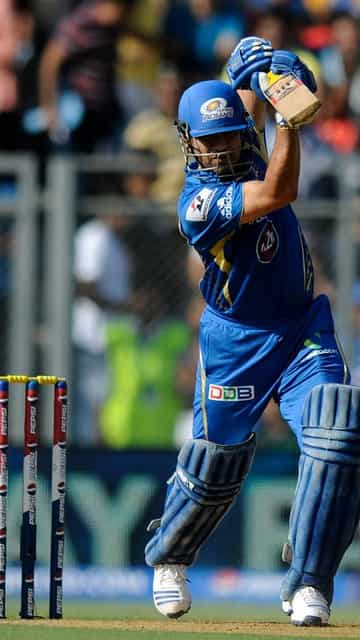Sports officials at the highest echelons are an unforgiving lot. They do not like their authority being questioned. And those who do it pay for it. Little wonder then, most sportspersons through their active careers – regardless of the sport – are essentially a subjugated lot. They have no voice. Even then, there are degrees of subjugation and none seems worse than what we see in boxing.
Highly subjective sports like boxing and wrestling, in particular, are draconian with no room for protests.
Laishram Sarita Devi, who protested after being adjudged loser against Korea's Ji-Na Park in a bout that the Indian had clearly dominated, will probably learn it the hard way, if the World Boxing body's chief Dr Ching-kuo K Wu's utterances are any indication as he pointed towards a 'very stern action'.
Wu, a former basketball player, who never boxed, later became a billionaire through his businesses in architecture and construction. He is a no-nonsense man, who does not tolerate indiscipline. At the time of taking over world boxing in 2006, he had vowed to 'clean' up the sport and he did try with new rules to judge bouts. But boxing has continued to attract controversies.
Wu, born in Nanking, China in 1946, but who now represents Taiwan in IOC since 1988, also made a bid for International Olympic Committee's president's position. But he lost to Thomas Bach, the current president.
It has been under Wu's leadership that amateur boxing has become 'professional' with the World Series Boxing, which had an Indian team in its inaugural year, but has had none after that. It was under him that 'amateur' boxers got paid five-figure purses in WSB and it was under him that pro rules and scoring over five rounds without headguards or vests came in. And it is his dream to see AIBA take over all boxing and allow professionals to participate in the Olympics.
It has also been in his tenure as the president, that boxing made it to the Olympics and India produced one of the all-time legends in MC Mary Kom. And it is also with him as president, that another one of India's finest women boxers with an enviable record at every level, Sarita Devi may probably never enter the ring again.
And that in these times would be gross injustice, more so from a sport that is littered with instances of 'injustices' and claims of 'fixing' and 'corruption'.
Instead of making a scapegoat of the sportspersons themselves and snatching their livelihood, the sport would do better by cleaning up their act.
In an era, where instant TV replays are used to take decisions in virtually every sport, there is no reason why boxing cannot do that and go back to replays in instances perceived as a clear case of 'impropriety' or sheer 'incompetence' of those judging it. Instead, the world body deems itself as above all natural processes of justice and fairplay, the very idea they claim to espouse.
Virtually every sport relies on technology to come closer to fairness with each passing year, but boxing seems to moving further away by muffling all voices of protest. They actually 'disallow' protests from boxers or officials – surely something that is unlikely to stand scrutiny at the level of Court of Arbitration for Sport (CAS) in Switzerland. The CAS routinely deals with difficult cases of world sport, ranging from doping bans, suspensions of football teams, individual cases where players have been banned or suspended for perceived breach of rules, regulations an even ethics of sport.
Possibly, Sarita possibly took her protest one step too far by refusing the medal and 'nearly' disrupted the medal ceremony, by first not taking the medal and then going over to hand it to the Korean, even as the winner, a Chinese boxer's national anthem was being played.
The fact that the Indian boxing body is a fractured one, which has been time and again pulled up by the world body, and whose elections have been a matter of debate and controversy, also weakens Sarita's quest for justice. In fact, the Indian boxing body has just about come out suspension themselves, and the chances of the officials trying to back Sarita are remote, if not non-existent.
Voices have been raised in the past about the highly autocratic powers that sports officials wield, particularly in sports like boxing and wrestling, where table judges and referees, often make absolutely 'incredulous' decisions. Yet, they all die down after sometime, because each constituent of the World Body is run by individual National federations and down the line by state federations. All of them are 'autocrats' in the own way. Yet the sportspersons themselves are expected to 'accept' them to keep up the façade of 'spirit of the sport'. Boxers and wrestlers at every level will reveal that in 'secret' but never talk about it openly.
Even as sportspersons are subjected to 'injustice' in terms of refereering and judging, protests on the podium have never been tolerated at the global level.
In 1968, American sprinters Tommie Smith and John Carlos were banned for life for showing the 'black fist' after they finished one-two in 200m at Mexico Olympics.
In 1972, 11 players from the Pakistan team were banned for life – that was reversed to two years later on – after their loss in the hockey final to Germany. Pakistan fans ran onto the field and tried to attack the then world body's chief, Rene Frank. At the medal ceremony, the Pakistan players took off their shoes and hung their medals on them instead of wearing the medals.
Boxing has always been controversial and South Korea has often been at the centre of it. Back in 1964, Korean boxer Choh Dong-kih staged an hour-long sit-in after being disqualified at the Tokyo Olympics; and in 1988 the boxing contests were littered with 'injustices' and 'indiscipline'.
First a Kiwi referee Keith Walker had to flea the arena and the country after docking a Korean boxer, Byun jong-il two points, a decision that cost him the bout. Byun staged a 67-minute sit-in!
At the same Games, American Roy Jones landed 86 punches to Korean Park Si-hun's 32 and yet the Korean was declared the winner. In an earlier bout, Vincenzo Nardiello, a three-time Italian champion, was literally dragged out of the ring after being declared a loser to the same Park in the semis. Spectators felt the Italian was a clear winner.
In 1986 Asian Games, the Koreans won each of the 12 gold medals on offer – something that has never happened in a Games at that level.
Many had then felt numerous decisions that should have gone the other way went the way of the Koreans.
World Boxing needs to look internally, rather than pushing boxers into a corner and force them to take a count or else be barred.
![submenu-img]() US imposes sanctions on Chinese, Belarus firms for providing ballistic missile tech to Pakistan
US imposes sanctions on Chinese, Belarus firms for providing ballistic missile tech to Pakistan![submenu-img]() 'Don't have any comment': White House mum on reports of Israeli strikes in Iran
'Don't have any comment': White House mum on reports of Israeli strikes in Iran![submenu-img]() Yes Bank co-founder Rana Kapoor gets bail after four years in bank fraud case
Yes Bank co-founder Rana Kapoor gets bail after four years in bank fraud case![submenu-img]() Barmer Lok Sabha Polls 2024: Check key candidates, date of voting and other important details
Barmer Lok Sabha Polls 2024: Check key candidates, date of voting and other important details![submenu-img]() This star once lived in garage, earned Rs 51 as first salary; now charges Rs 5 crore per film, is worth Rs 335 crore
This star once lived in garage, earned Rs 51 as first salary; now charges Rs 5 crore per film, is worth Rs 335 crore![submenu-img]() DNA Verified: Is CAA an anti-Muslim law? Centre terms news report as 'misleading'
DNA Verified: Is CAA an anti-Muslim law? Centre terms news report as 'misleading'![submenu-img]() DNA Verified: Lok Sabha Elections 2024 to be held on April 19? Know truth behind viral message
DNA Verified: Lok Sabha Elections 2024 to be held on April 19? Know truth behind viral message![submenu-img]() DNA Verified: Modi govt giving students free laptops under 'One Student One Laptop' scheme? Know truth here
DNA Verified: Modi govt giving students free laptops under 'One Student One Laptop' scheme? Know truth here![submenu-img]() DNA Verified: Shah Rukh Khan denies reports of his role in release of India's naval officers from Qatar
DNA Verified: Shah Rukh Khan denies reports of his role in release of India's naval officers from Qatar![submenu-img]() DNA Verified: Is govt providing Rs 1.6 lakh benefit to girls under PM Ladli Laxmi Yojana? Know truth
DNA Verified: Is govt providing Rs 1.6 lakh benefit to girls under PM Ladli Laxmi Yojana? Know truth![submenu-img]() Remember Ali Haji? Aamir Khan, Kajol's son in Fanaa, who is now director, writer; here's how charming he looks now
Remember Ali Haji? Aamir Khan, Kajol's son in Fanaa, who is now director, writer; here's how charming he looks now![submenu-img]() Remember Sana Saeed? SRK's daughter in Kuch Kuch Hota Hai, here's how she looks after 26 years, she's dating..
Remember Sana Saeed? SRK's daughter in Kuch Kuch Hota Hai, here's how she looks after 26 years, she's dating..![submenu-img]() In pics: Rajinikanth, Kamal Haasan, Mani Ratnam, Suriya attend S Shankar's daughter Aishwarya's star-studded wedding
In pics: Rajinikanth, Kamal Haasan, Mani Ratnam, Suriya attend S Shankar's daughter Aishwarya's star-studded wedding![submenu-img]() In pics: Sanya Malhotra attends opening of school for neurodivergent individuals to mark World Autism Month
In pics: Sanya Malhotra attends opening of school for neurodivergent individuals to mark World Autism Month![submenu-img]() Remember Jibraan Khan? Shah Rukh's son in Kabhi Khushi Kabhie Gham, who worked in Brahmastra; here’s how he looks now
Remember Jibraan Khan? Shah Rukh's son in Kabhi Khushi Kabhie Gham, who worked in Brahmastra; here’s how he looks now![submenu-img]() DNA Explainer: What is cloud seeding which is blamed for wreaking havoc in Dubai?
DNA Explainer: What is cloud seeding which is blamed for wreaking havoc in Dubai?![submenu-img]() DNA Explainer: What is Israel's Arrow-3 defence system used to intercept Iran's missile attack?
DNA Explainer: What is Israel's Arrow-3 defence system used to intercept Iran's missile attack?![submenu-img]() DNA Explainer: How Iranian projectiles failed to breach iron-clad Israeli air defence
DNA Explainer: How Iranian projectiles failed to breach iron-clad Israeli air defence![submenu-img]() DNA Explainer: What is India's stand amid Iran-Israel conflict?
DNA Explainer: What is India's stand amid Iran-Israel conflict?![submenu-img]() DNA Explainer: Why Iran attacked Israel with hundreds of drones, missiles
DNA Explainer: Why Iran attacked Israel with hundreds of drones, missiles![submenu-img]() This star once lived in garage, earned Rs 51 as first salary; now charges Rs 5 crore per film, is worth Rs 335 crore
This star once lived in garage, earned Rs 51 as first salary; now charges Rs 5 crore per film, is worth Rs 335 crore![submenu-img]() Meet actress, who worked as cook for free food, mopped floors, one Instagram post changed her life, is now worth…
Meet actress, who worked as cook for free food, mopped floors, one Instagram post changed her life, is now worth… ![submenu-img]() UP man arrested for booking cab from Salman Khan's house under Lawrence Bishnoi's name
UP man arrested for booking cab from Salman Khan's house under Lawrence Bishnoi's name ![submenu-img]() 'Justice milega': Ankita Lokhande talks about Sushant Singh Rajput, reveals she's still connected with his family
'Justice milega': Ankita Lokhande talks about Sushant Singh Rajput, reveals she's still connected with his family![submenu-img]() Rajkummar Rao reacts to plastic surgery rumours, admits he got fillers: 'If something gives me confidence...'
Rajkummar Rao reacts to plastic surgery rumours, admits he got fillers: 'If something gives me confidence...'![submenu-img]() IPL 2024: KL Rahul, Quinton de Kock star in Lucknow Super Giants' dominating 8-wicket win over Chennai Super Kings
IPL 2024: KL Rahul, Quinton de Kock star in Lucknow Super Giants' dominating 8-wicket win over Chennai Super Kings![submenu-img]() DC vs SRH, IPL 2024: Predicted playing XI, live streaming details, weather and pitch report
DC vs SRH, IPL 2024: Predicted playing XI, live streaming details, weather and pitch report![submenu-img]() Watch: Virat Kohli's cheeky 'your wife' remark to Dinesh Karthik leaves RCB teammates in splits
Watch: Virat Kohli's cheeky 'your wife' remark to Dinesh Karthik leaves RCB teammates in splits ![submenu-img]() DC vs SRH IPL 2024 Dream11 prediction: Fantasy cricket tips for Delhi Capitals vs Sunrisers Hyderabad
DC vs SRH IPL 2024 Dream11 prediction: Fantasy cricket tips for Delhi Capitals vs Sunrisers Hyderabad![submenu-img]() 'Kohli said it's not an option, just...': KL Rahul recalls his IPL debut for RCB in 2013
'Kohli said it's not an option, just...': KL Rahul recalls his IPL debut for RCB in 2013![submenu-img]() Canada's biggest heist: Two Indian-origin men among six arrested for Rs 1300 crore cash, gold theft
Canada's biggest heist: Two Indian-origin men among six arrested for Rs 1300 crore cash, gold theft![submenu-img]() Donuru Ananya Reddy, who secured AIR 3 in UPSC CSE 2023, calls Virat Kohli her inspiration, says…
Donuru Ananya Reddy, who secured AIR 3 in UPSC CSE 2023, calls Virat Kohli her inspiration, says…![submenu-img]() Nestle getting children addicted to sugar, Cerelac contains 3 grams of sugar per serving in India but not in…
Nestle getting children addicted to sugar, Cerelac contains 3 grams of sugar per serving in India but not in…![submenu-img]() Viral video: Woman enters crowded Delhi bus wearing bikini, makes obscene gesture at passenger, watch
Viral video: Woman enters crowded Delhi bus wearing bikini, makes obscene gesture at passenger, watch![submenu-img]() This Swiss Alps wedding outshine Mukesh Ambani's son Anant Ambani's Jamnagar pre-wedding gala
This Swiss Alps wedding outshine Mukesh Ambani's son Anant Ambani's Jamnagar pre-wedding gala








































)




)
)
)
)
)
)